第6章 CHAPTER I.(5)
The small village is utterly destitute of everything, and the sterile desert extends to the very margin of the Nile. The journey having occupied ninety-two hours of actual marching across the desert, gives 230 miles as the distance from Korosko, at the loaded-camel rate of two and a half miles per hour. The average duration of daily march has been upwards of thirteen hours, including a day's halt at Moorahd. My camels have arrived in tolerable condition, as their loads did not exceed 400 lbs.
each; the usual load is 500 lbs.
"May 24.--Rested both men and beasts. A caravan of about thirty camels arrived, having lost three during the route.
"May 25.--Started at 5 A.M. The route is along the margin of the Nile, to which the desert extends. A fringe of stunted bushes, and groves of the coarse and inelegant dome palm, mark the banks of the river by a thicket of about half a mile in width. I saw many gazelles, and succeeded in stalking a fine buck, and killing him with a rifle.
"May 26.--Marched ten hours. Saw gazelles, but so wild that it was impossible to shoot. Thermometer 110 degrees Fahr.
"May 27.--Marched four hours and forty-five minutes, when we were obliged to halt, as F. is very ill. In the evening I shot two gazelles, which kept the party in meat.
"May 28.--Marched fifteen hours, to make up for the delay of yesterday. Shot a buck on the route.
"May 29.--The march of yesterday cut off an angle of the river, and we made a straight course through the desert, avoiding a bend of the stream. At 7.30 this morning we met the Nile again; the same character of country as before, the river full of rocks, and forming a succession of rapids the entire distance from Abou Hammed. Navigation at this season is impossible, and is most dangerous even at flood-time. The simoom is fearful, and the heat is so intense that it was impossible to draw the gun-cases out of their leather covers, which it was necessary to cut open. All woodwork is warped; ivory knife-handles are split; paper breaks when crunched in the hand, and the very marrow seems to be dried out of the bones by this horrible simoom. One of our camels fell down to die. Shot two buck gazelles; I saw many, but they are very wild.
"May 3O.--The extreme dryness of the air induces an extraordinary amount of electricity in the hair, and in all woollen materials.
A Scotch plaid laid upon a blanket for a few hours adheres to it, and upon being roughly withdrawn at night a sheet of flame is produced, accompanied by tolerably loud reports.
"May 31.--After an early march of three hours and twenty minutes, we arrived at the town of Berber, on the Nile, at 9.35 A.M. We have been fifty-seven hours and five minutes actually marching from Abou Hammed, which, at two and a half miles per hour, equals 143 miles. We have thus marched 373 miles from Korosko to Berber in fifteen days; the entire route is the monotonous Nubian desert. Our camels have averaged twenty-five miles per day, with loads of 400 lbs. at a cost of ninety piastres (about 19s.) each, for the whole distance. This rate, with the addition of the guide's expenses, equals about 5s. 6d. per 100 lbs. for carriage throughout 373 miles of burning desert. Although this frightful country appears to be cut off from all communication with the world, the extremely low rate of transport charges affords great facility for commerce."** Since that date, 31st May, 1861, the epidemic or cattle plague carried off an immense number of camels, and the charges of transport rose in 1864 and 1865 to a rate that completely paralysed the trade of Upper Egypt.
Berber is a large town, and in appearance is similar to the Nile towns of Lower Egypt, consisting of the usual dusty, unpaved streets, and flat-roofed houses of sun-baked bricks. It is the seat of a Governor, or Mudir, and is generally the quarters for about 1,500 troops. We were very kindly received by Halleem Effendi, the ex-Governor, who at once gave us permission to pitch the tents in his garden, close to the Nile, on the southern outskirt of the town. After fifteen days of desert marching, the sight of a well-cultivated garden was an Eden in our eyes. About eight acres of land, on the margin of the river, were thickly planted with lofty date groves, and shady citron and lemon trees, beneath which we revelled in luxury on our Persian rugs, and enjoyed complete rest after the fatigue of our long journey.
Countless birds were chirping and singing in the trees above us;innumerable ring-doves were cooing in the shady palms; and the sudden change from the dead sterility of the desert to the scene of verdure and of life, produced an extraordinary effect upon the spirits. What caused this curious transition? Why should this charming oasis, teeming with vegetation and with life, be found in the yellow, sandy desert? . . . Water had worked this change;the spirit of the Nile, more potent than any genii of the Arabian fables, had transformed the desert into a fruitful garden.
Halleem Effendi, the former Governor, had, many years ago, planted this garden, irrigated by numerous water-wheels; and we now enjoyed the fruits, and thanked Heaven for its greatest blessings in that burning land, shade and cool water.
The tents were soon arranged, the camels were paid for and discharged, and in the cool of the evening we were visited by the Governor and suite.